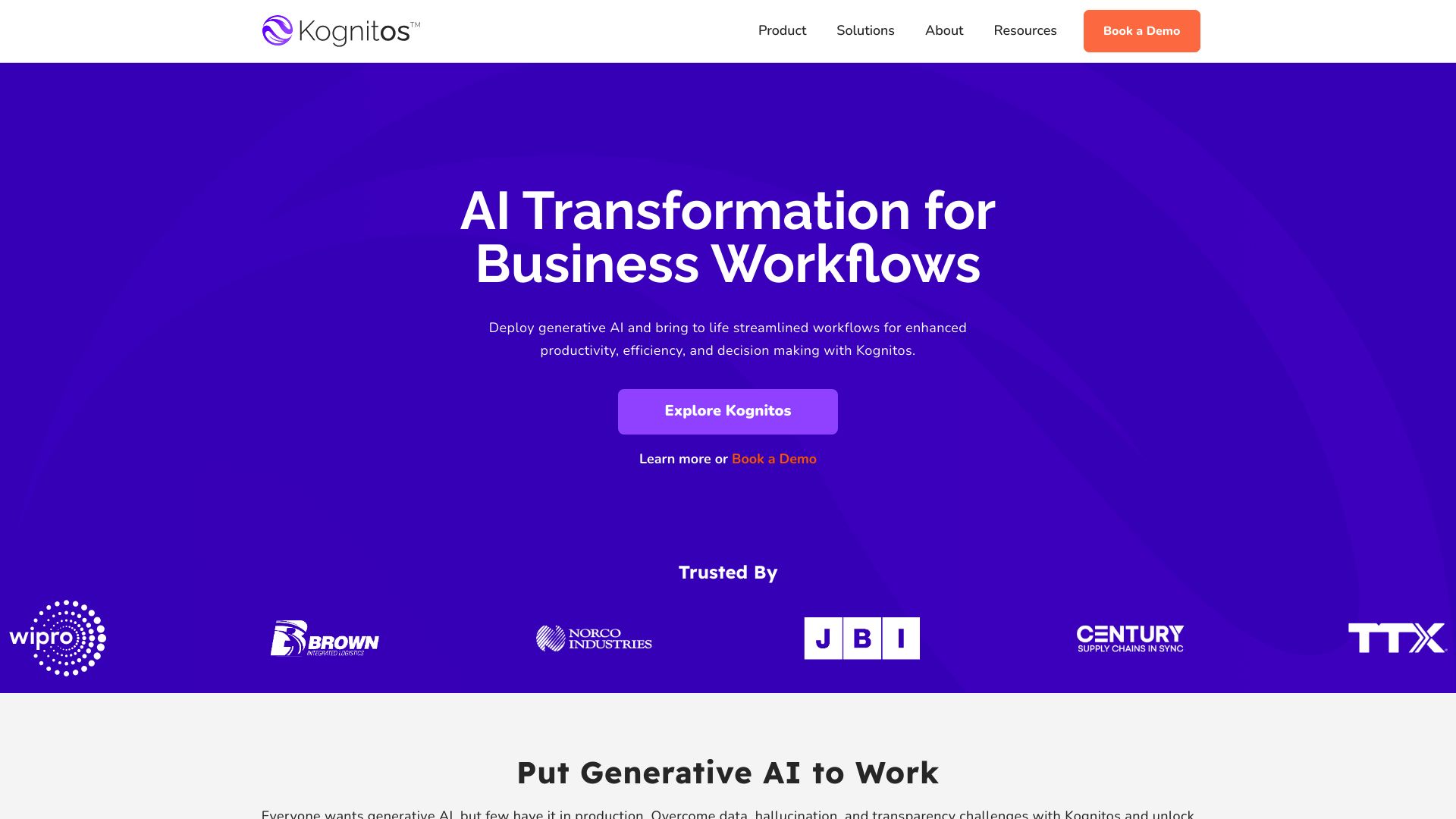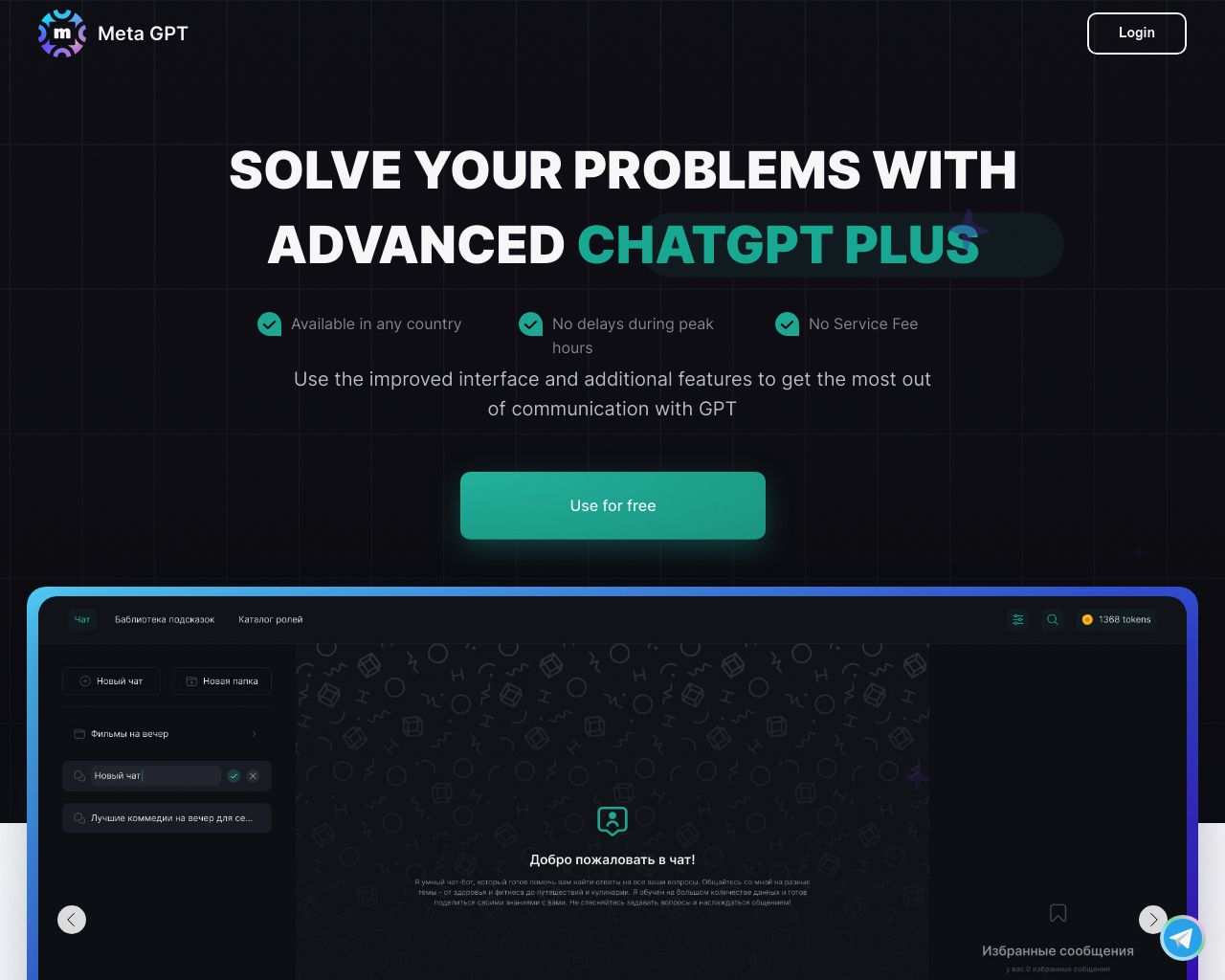Kognitos vs. MetaGPT: AI Automation Titans Compared
AI-powered automation platforms revolutionize how businesses operate, streamline processes, and enhance productivity. This comparison explores Kognitos vs. MetaGPT, and SmythOS, three innovative solutions reshaping the AI landscape. Kognitos simplifies task automation through natural language processing, while MetaGPT employs a multi-agent framework for complex software development.
SmythOS, our cutting-edge platform, combines versatility, security, and user-friendliness to deliver a comprehensive AI solution. This review delves into each platform’s unique features, strengths, and potential limitations, equipping you with the knowledge to choose the ideal AI tool for your specific needs.
Kognitos Overview
Kognitos revolutionizes business automation with its AI-powered platform that understands and executes tasks using natural language. This innovative approach eliminates the need for complex coding, allowing users to automate processes by describing them in plain English.


Kognitos leverages advanced natural language processing and large language models to interpret user instructions and translate them into actionable workflows. This technology empowers businesses to streamline operations, reduce manual errors, and increase efficiency across various departments.
Kognitos leverages advanced natural language processing… to interpret user instructions and translate them into actionable workflows.
The platform excels in document processing, data extraction, and system integration. It handles tasks ranging from invoice processing and customer onboarding to complex financial operations. Kognitos adapts to unique business requirements, learning from user interactions to improve its performance over time.
While Kognitos offers powerful automation capabilities, it may require some adjustment for users accustomed to traditional visual programming interfaces. The platform’s reliance on natural language input, while innovative, might present a learning curve for those used to more structured coding environments. Additionally, the extent of its integration with specialized industry-specific software may vary, potentially limiting its applicability in certain niche sectors.
Kognitos positions itself as a bridge between human expertise and AI capabilities, aiming to democratize automation technology. By enabling non-technical users to create sophisticated workflows, it addresses the growing demand for accessible AI solutions in the business world. As organizations seek to leverage AI for improved efficiency, Kognitos stands out as a tool that balances power with user-friendliness, making it a compelling option for businesses looking to embrace AI-driven automation.
MetaGPT Overview
MetaGPT revolutionizes software development with its multi-agent collaborative framework. Built on large language models, MetaGPT encodes human Standard Operating Procedures into AI agents, enhancing complex problem-solving capabilities. The platform features specialized agents like product managers, architects, and engineers that work together autonomously to develop intricate software systems.
MetaGPT excels in automating the entire software development lifecycle. From requirements gathering to quality assurance, the system outperforms competitors in code quality and process compliance. With a single prompt, users can set up a virtual software company, handling everything from competitive analysis to API creation.
MetaGPT revolutionizes software development with its multi-agent collaborative framework… enhancing complex problem-solving capabilities.


The platform’s global memory pool enables agents to access relevant information from past interactions, enhancing learning and adaptability. This feature, combined with the division of tasks among specialized agents, mimics real-world team dynamics, offering a more realistic and efficient approach to project management.
The platform’s global memory pool enables agents to access relevant information… mimics real-world team dynamics, offering a more realistic and efficient approach to project management.
While MetaGPT shines in complex software development tasks, it lacks some features found in other AI agent builders. The platform doesn’t offer a visual builder or no-code editor, focusing instead on natural language automation. It also doesn’t support multimodal interactions or provide a hosted vector database, which may limit its applicability in certain use cases.
MetaGPT’s vision centers on revolutionizing software development through AI, making the process more efficient and scalable. By automating complex tasks and fostering collaboration between specialized AI agents, MetaGPT represents a significant advancement in AI-driven software engineering. However, users should consider their specific needs and technical expertise when evaluating its suitability for their projects.
Feature Comparison
Kognitos and MetaGPT offer distinct approaches to AI-powered automation, with notable differences in their core components and security features. Kognitos excels in natural language processing, allowing users to automate tasks using plain English instructions. This approach eliminates the need for complex coding, making it accessible to non-technical users. However, Kognitos lacks a visual builder, which may limit its appeal to those who prefer a more graphical interface for workflow design.
MetaGPT, on the other hand, focuses on multi-agent collaboration for software development. Its framework of specialized AI agents mimics a software development team, handling tasks from requirements gathering to code generation. While this approach offers powerful capabilities for software projects, it may be overkill for simpler automation tasks that Kognitos handles efficiently.
In terms of security, both platforms prioritize data protection, but implement it differently. Kognitos implies robust security measures suitable for enterprise customers, including data encryption and access controls. MetaGPT, designed for software development, likely incorporates security best practices into its code generation process. However, SmythOS outshines both in this area, offering advanced features like constrained alignment and comprehensive audit logs, ensuring both security and transparency in AI operations.
Feature Comparison Table
| Kognitos | MetaGPT | SmythOS | |
|---|---|---|---|
| CORE FEATURES | |||
| Hosted Agents (Dev, Production) | ✅ | ❌ | ✅ |
| Visual Builder | ❌ | ❌ | ✅ |
| No-Code Options | ✅ | ❌ | ✅ |
| Debug Tools | ✅ | ❌ | ✅ |
| Multimodal | ✅ | ❌ | ✅ |
| Audit Logs for Analytics | ✅ | ❌ | ✅ |
| SECURITY | |||
| Constrained Alignment | ❌ | ✅ | ✅ |
| Data Encryption | ✅ | ❌ | ✅ |
| OAuth | ✅ | ❌ | ✅ |
| IP Control | ❌ | ❌ | ✅ |
| COMPONENTS | |||
| Zapier APIs | ❌ | ❌ | ✅ |
| Classifiers | ✅ | ❌ | ✅ |
| Logic | ✅ | ❌ | ✅ |
| Data Lakes | ❌ | ❌ | ✅ |
| DEPLOYMENT OPTIONS (EMBODIMENTS) | |||
| Deploy as Webhook | ❌ | ❌ | ✅ |
| Staging Domains | ✅ | ❌ | ✅ |
| API Authentication (OAuth + Key) | ✅ | ❌ | ✅ |
| Deploy as Site Chat | ❌ | ❌ | ✅ |
| Deploy as Scheduled Agent | ✅ | ❌ | ✅ |
| Deploy as GPT | ❌ | ✅ | ✅ |
| DATA LAKE SUPPORT | |||
| Hosted Vector Database | ❌ | ❌ | ✅ |
| Sitemap Crawler | ❌ | ❌ | ✅ |
| YouTube Transcript Crawler | ❌ | ❌ | ✅ |
| URL Crawler | ❌ | ❌ | ✅ |
| PDF Support | ✅ | ❌ | ✅ |
| Word File Support | ✅ | ❌ | ✅ |
Best Alternative to Kognitos and MetaGPT
SmythOS stands out as the superior alternative to Kognitos and MetaGPT for AI automation. Our platform offers unparalleled ease of use, an extensive feature set, and unlimited use cases. SmythOS combines the natural language capabilities of Kognitos with the collaborative power of MetaGPT, while addressing their limitations. Our drag-and-drop visual builder empowers both technical and non-technical users to create sophisticated AI workflows without coding. Unlike Kognitos, SmythOS provides a comprehensive visual interface for intuitive agent design. And while MetaGPT focuses solely on software development, our platform supports a vast array of business processes and industries.
SmythOS stands out as the superior alternative to Kognitos and MetaGPT for AI automation. Our platform offers unparalleled ease of use, an extensive feature set, and unlimited use cases.
SmythOS excels in critical areas where Kognitos and MetaGPT fall short. We offer robust debugging tools, multimodal capabilities, and detailed analytics — features missing from both competitors. Our platform also provides unmatched deployment flexibility, allowing you to integrate AI agents as APIs, chatbots, scheduled tasks, and more. SmythOS delivers enterprise-grade security through data encryption, OAuth, and IP controls, surpassing the limited security options of Kognitos and MetaGPT.
With our hosted vector database and support for diverse data sources, SmythOS empowers you to build truly intelligent agents that leverage your organization’s knowledge. By choosing SmythOS, you gain a future-proof AI automation platform that combines ease of use with unlimited potential. Our solution accelerates your path to AI-driven innovation while providing the scalability and flexibility to grow with your needs.
Conclusion
Kognitos, MetaGPT, and SmythOS each offer unique approaches to AI-powered automation and development. Kognitos excels in natural language processing, allowing users to create workflows using plain English. This accessibility makes it attractive for businesses seeking to automate processes without extensive coding knowledge. MetaGPT stands out with its multi-agent framework for software development, mimicking real-world team dynamics and potentially revolutionizing the software creation process.
However, SmythOS emerges as the superior choice, combining the strengths of its competitors while addressing their limitations. Our platform offers unparalleled versatility with its drag-and-drop interface, extensive integration ecosystem, and support for multiple AI models. We enable users to create sophisticated AI agents and deploy them across various platforms, from APIs to chatbots, without compromising on security or scalability.
SmythOS’s ability to handle complex workflows, support multimodal interactions, and provide a hosted vector database sets it apart from both Kognitos and MetaGPT. Our platform’s emphasis on user-friendliness, combined with powerful features like constrained alignment and comprehensive audit logs, makes it suitable for a wide range of users, from non-technical professionals to experienced developers.
To experience the future of AI automation and development, we invite you to explore our diverse range of AI-powered agent templates. These templates cover multiple business categories and are designed to streamline processes across various functions. For those ready to take the next step, create a free SmythOS account and start building AI agents with no time limit. Discover how SmythOS can transform your workflow and unleash the full potential of AI for your business.
Last updated:
Disclaimer: The information presented in this article is for general informational purposes only and is provided as is. While we strive to keep the content up-to-date and accurate, we make no representations or warranties of any kind, express or implied, about the completeness, accuracy, reliability, suitability, or availability of the information contained in this article.
Any reliance you place on such information is strictly at your own risk. We reserve the right to make additions, deletions, or modifications to the contents of this article at any time without prior notice.
In no event will we be liable for any loss or damage including without limitation, indirect or consequential loss or damage, or any loss or damage whatsoever arising from loss of data, profits, or any other loss not specified herein arising out of, or in connection with, the use of this article.
Despite our best efforts, this article may contain oversights, errors, or omissions. If you notice any inaccuracies or have concerns about the content, please report them through our content feedback form. Your input helps us maintain the quality and reliability of our information.
